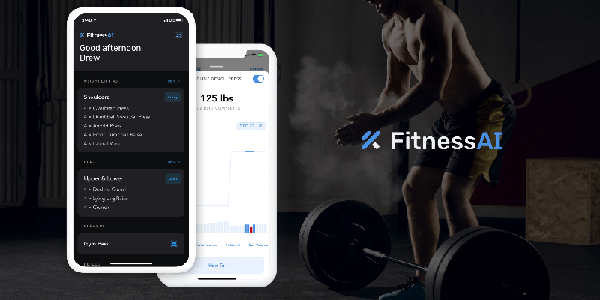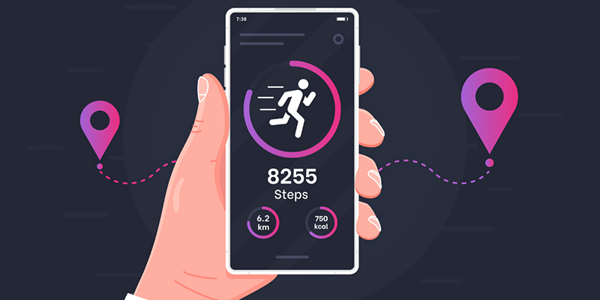6 Benefits Of Ai-Powered Fitness Apps
Having a balanced and active lifestyle is not easy in the current environment. With day-to-day activities such as work, family, and social meetings, it is almost impossible to have free time to exercise or eat healthily. However, technology is here to help with this problem and offer a solution through AI-powered fitness application software. These programs are not basic workout trackers but complex software created to assist you in achieving your fitness goals more effectively than ever before.
Customized Workout Plans
One of the key features that benefit users using AI fitness applications is the ability to generate specific workout plans. Created fitness plans are more developed and focused on users' unique needs and targets. They are not like some fitness programs that target everyone but lack customization because of the different respondents. These apps utilize machine learning algorithms to personalize user plans by considering factors such as your fitness level, background, preferences, and indication, further customizing the routines depending on the user's step. Therefore, it ensures that the person is challenged but not burnt out.

These apps deliver unprecedented flexibility in fulfilling every individual's fitness needs. Users have complete access to fitness trainers who are always available to assist them in any way possible, no matter the hour. Trainers can know when to take more action and when to relax without having to be physically present with them. This information helps users stay committed to their fitness goals and achieve their targets.
Motivation And Support Provided In Real-Time
Different aspects of AI fitness apps have the unique functionality of offering feedback and interaction while the customer is exercising. Whether performing resistance training, running, biking, or Yoga, this app helps them to the fullest. If an individual possesses a wearable device or smartphone, the app can track their form, pace, heart rate, and other signs of health through their sensors. If any red flags are noticed, such as bad posture while squatting or decreased stride frequency while running, the application will intervene to prevent injury or aid in performance improvement.
Also, motivational levels rise tremendously thanks to positive feedback after completing exercises. People who receive regular check-ins during their exercises tend to stick to routines longer than those who do not receive assistance. So next time you complete a gruelling session, look out for a congratulatory message for watching stats like calories burned and distance covered because such things keep spirits high!
Nutrition Guidance
Aside from monitoring exercise and physical activity, many advanced modern fitness apps now place heavier emphasis on nutrition. Users can use them to log meals consumed, monitor macronutrient intake, provide meal plans according to restrictions, and even predict possible deficiencies before symptoms set in. These systems are intelligent enough to look at patterns over time and identify cuts that could be made, such as reducing sugar intake or increasing the need for protein afterwards.
Imagine an app telling you, "Add leafy greens to tomorrow's lunch based on food diary entries from yesterday." Now you have information to help you eat better and improve your health. A nutritionist could only solve such problems, which would be too expensive and inconvenient.
Social Features And Community Support
Humans are naturally social, so interaction and collaboration are the primary factors enhancing performance. From this viewpoint, several AI-powered fitness solutions have integrated community aspects that permit users to interact with other users who have similar goals. You can participate in challenges, contest your friends, earn awards openly, or applaud each other in their journeys to better health.
Engaging in supportive communities boosts motivation because once you know someone else is interested in your progress, it helps you remain consistent. Moreover, competition adds a bonus by making tedious tasks fun and action-packed, motivating a person to complete those tasks daily!
Economic Considerations
While prioritizing investment in personal health, funding is essential. People underestimate the financial burden of gym subscriptions and personal trainers and how it stifles participation from budget-conscious consumers. On the other hand, most AI fitness applications come at an affordable subscription rate or even free and have advanced features similar to those of a professional service.
Also, there are no additional costs from fuel spent travelling because these digital aides are in the palm of your hands, and each commute saves you time that would've been spent travelling between locations. As a result, anyone interested, irrespective of their geographical location or economic status, has easy access to resources that promote physical activities.
Usability Across Social Groups
One further commendable feature of fitness technology brought about by AI innovation is its usability across social groups: the age, gender, culture, and physical condition of an individual do not impact the interest in health improvement. For instance, elderly citizens who have arthritis wishing to perform light exercises would find suitable options available to them, just as young marathoners in training.

Moreover, unlike earlier generations' fitness industries, non-English-speaking populations can benefit from this technological globalization, which was made possible because of multilingual support. As a result, advanced technology seeking to develop and innovate further automatically removes traditional adoption barriers.
Security Issues
While incorporating AI in fitness apps has many benefits, scrutiny arises because data privacy is a sensitive issue for some groups of people in society. Developers should guarantee protection over user data; therefore, robust encryption, transparent collection policies, and voluntary disclosure control should be the norm.
Moving forward, the balance between the convenience of one's interconnected world and the risk of unauthorized access to private data has to be balanced first. Hence, any potential users looking to AI for a better health experience must thoroughly analyze the platform's terms and conditions that boast its promise.
What Is The Impact Of Smart Technology On The Fitness Industry
As we sit at the edge of another phenomenal revolution sweeping through sectors like healthcare and sports science, expectations run high for developments within AI-enabled fitness solutions. New trends suggest forward integrations incorporating ML models for proactive measures to intervene before injuries occur.
In addition, the fusion of VR with AR creates possibilities of richly immersive environments that mimic the outdoors without actually being there, allowing for exploration outside the imposed geographical and weather boundaries within which modern society is restricted. Imagine cycling through picturesque mountain trails without leaving the comfort of your cosy home. All of this is made possible through advanced technologies that significantly augment the quality of life!
How Technology Is Fueling Fitness Enthusiasts Across The Globe
To that end, we can also witness an AI-driven modern fitness regime that helps connect like-minded people across the globe and help each other achieve the optimal degree of fitness people want, prompting us to augment how we engage with the physical world.
Never forget that technological change won't make previously existing methods irrelevant—they can serve as synergetic supplementary additions that broaden one's scope. Take advantage of what is available today and witness your growth in strength, health, and happiness tomorrow.
With continuous innovation, the future seems promising for adventurers looking to traverse new boundaries defined by their limits rather than arbitrary restrictions imposed from elsewhere. Maintain that curiosity and keep progressing onward. This is your journey to enjoy and witness however you like!




